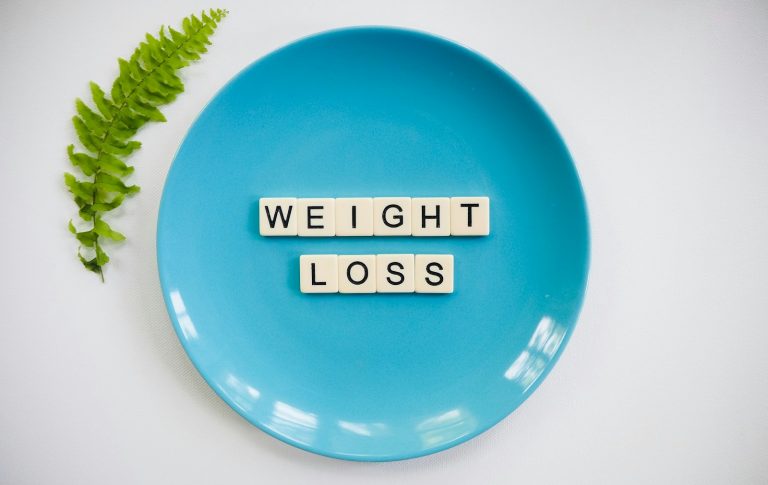Maintaining a healthy weight has several advantages beyond just making you feel more energetic and fitting into smaller clothes. You’re probably going to live a better quality of life if you lose weight or keep it off. Healthy living and improved weight control mostly depend on a well-balanced food and lifestyle.
Making progressive, long-lasting, and advantageous lifestyle adjustments is crucial for safe weight loss. It is also essential for long-term weight maintenance. In this blog, we will share some tips to lose your weight effectively and gradually.
1. Eat Mindfully
Eating with awareness, that is, knowing exactly why, how, when, where, and what one is eating benefits a lot of individuals. Being attentive to your food is a good thing. Pay attention to every bite of food. This facilitates tasting enjoyment. Furthermore, it increases your awareness of fullness. Avoid staring at your phone or watching TV while eating, if possible. Without realizing it, you can be eating too much.
A direct result of learning to listen to your body is knowing to make healthier dietary choices. When choosing a meal, you may also think about the following queries: In terms of calories spent, is it a good “value”? Is it satisfying? Do the components have any health benefits? What is the amount of fat and sodium listed on the label, if any?
2. Eliminate Liquid Calories
Drinking tea, juice, soda with added sugar, or alcohol can result in the consumption of hundreds of calories every day. Experts refer to these as “empty calories” since they are high in energy content but low in nutritious value.
You should try to limit their intake to water, unsweetened tea, and coffee unless you decide to use smoothies as a meal substitute. A squeeze of fresh orange or lemon can add taste to water. Do not confuse thirst with hunger. Between planned meal times, you can frequently quench their appetite by drinking water.
3. Enjoy Nutritional Dense Food
You must consume less calories overall from food and beverages if you want to reduce weight. Still, you can have excellent, easy-to-make dinners. Making sure that each meal includes 50% fruit and vegetables, 25% healthy grains, and 25% protein is an easy method to develop a meal plan. We refer to these as plant-based foods.
They provide a lot of fiber and a few calories. Fiber promotes fullness. Aim for a daily total fiber intake of 25–30 gramsTrusted Source (g). You may achieve your goals by consuming weight loss support supplies which are available from https://curalife.com/products/curaslim. It is capable of providing nutrients that are typically absent from a diet heavy in calories.
4. Engage in Regular Physical Activity
Without exercise, weight loss is still possible, but it’s more difficult. Regular physical action aids in burning excess calories. Increasing physical activity levels in a deliberate and disciplined manner is frequently essential for effective weight loss. Steady aerobic activity, such as brisk walking, is one of the greatest strategies to decrease body fat.
Most days of the week, aim to reach a minimum of 30 minutes of aerobic activity. For some people, this may not be enough activity to help them lose weight and keep it off. Research indicates that long-term weight reduction maintenance is associated with frequent activity. Individuals who do not often engage in physical activity should progressively increase both the quantity and intensity of their exercise.
5. Manage Stress Levels
One cannot emphasize how closely our emotions and health are related. Stress causes the body to release chemicals like cortisol and adrenaline, which at first suppress hunger as a part of the fight-or-flight reaction. On the other hand, prolonged exposure to stress can cause cortisol to stay in the system, increasing hunger and perhaps resulting in overeating.
Researchers discovered that children and adolescents who were overweight or obese had a substantial decrease in their body mass index (BMI) when they were given an 8-week stress-management intervention program in addition to a low-calorie diet. Making time for friends and family, practicing stress management strategies, and engaging in meditation can all help you maintain a healthy waistline and heart.
6. Get Enough Sleep
Developing sound sleeping practices will help you lose weight. Studies have demonstrated a correlation between an increased risk of obesity and sleep duration of less than 5–6 hours each night. This is due to several factors. Studies indicate that inadequate or poor sleep might hinder the body’s metabolic process, which is the process by which calories are converted into energy.
The body may retain excess energy as fat when metabolism is less efficient. In addition, insufficient sleep can raise cortisol levels and encourage insulin resistance, both of which lead to the accumulation of fat. The regulation of the hunger-controlling hormones leptin and ghrelin is also influenced by an individual’s length of sleep.
Conclusion
You can lose weight successfully without adhering to a strict food schedule. Rather, the emphasis should be on consuming fewer calories and increasing physical activity to attain an energy imbalance.
Reducing the overall amount of calories consumed is what leads to weight reduction, not changing the ratios of protein, fat, and carbohydrates in the diet. The effective strategy to reduce weight is to engage in regular physical exercise along with a healthy diet.



0 Comments